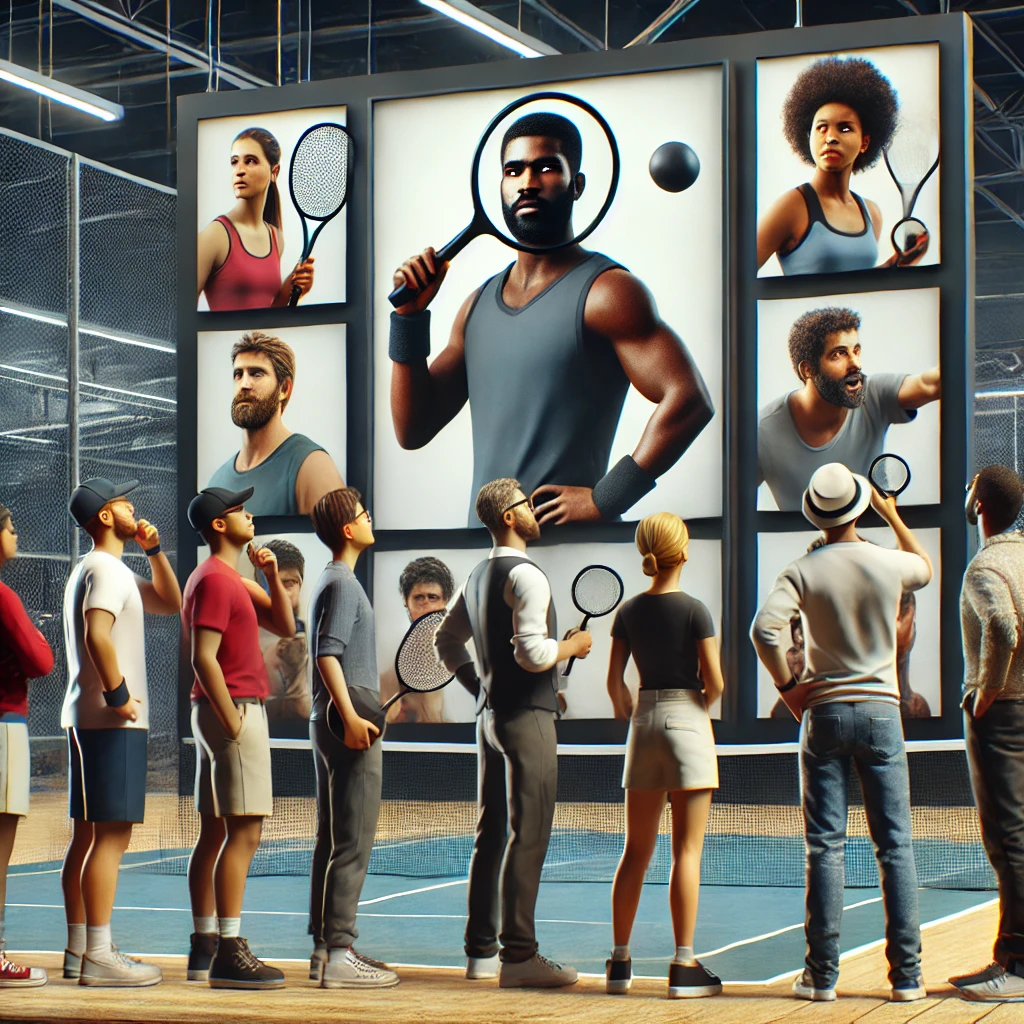
Leadership, Representation, and Inclusion: Why Pickleball Needs More African American Players
Pickleball is booming. With over 36 million players in the U.S., the sport is no longer just for retirees-it’s a full-fledged movement. But as the game grows, one major gap remains: Where are the African American players?
Leadership isn’t just about titles and power-it’s about representation, access, and influence. When an entire group is underrepresented in a fast-growing sport, we have to ask: Who’s leading? Who’s shaping the game? And what does it mean for the future of pickleball?
This isn’t just about adding numbers to a diversity report. It’s about expanding opportunities, developing new leaders, and making sure everyone benefits from the sport’s growth.
Why Leadership in Sports Matters
Sports have always been a breeding ground for leadership. From the basketball court to the boardroom, athletes learn teamwork, resilience, communication, and strategic thinking-all essential leadership skills.
Pickleball, with its unique mix of individual skill and social play, is a perfect training ground for leadership. Yet, with so few African American players, the opportunities for leadership, networking, and influence are limited.
The Leadership Pipeline in Sports
In other sports, African American athletes have risen to the top and become leaders-not just as players, but as coaches, commentators, executives, and business owners. Think about:
– Serena Williams in tennis, paving the way for young Black women.
– Michael Jordan and LeBron James in basketball, who turned their influence into business and activism.
– Tiger Woods in golf, breaking down barriers in a historically exclusive sport.
Where is pickleball’s version of this leadership pipeline for African American athletes? Without more African American participation, the sport misses out on new leaders, perspectives, and talent that could take it to the next level.
Barriers to Leadership in Pickleball
To understand why African American players aren’t becoming leaders in pickleball, we have to address the barriers:
1. Lack of Representation and Role Models – If there are no visible African American pickleball professionals, coaches, or commentators, the leadership pipeline never forms.
2. Limited Access to Resources and Training – Leadership isn’t just about talent-it’s about access to resources, training, and networks. If pickleball programs aren’t being introduced in African American communities, there’s no opportunity to develop the next generation of leaders
3. Social and Cultural Disconnect – Basketball, football, and track thrive in African American communities because they’re deeply woven into schools, churches, and neighborhood programs. Pickleball hasn’t found that cultural connection yet.
Why More Diversity in Pickleball Benefits Everyone
Leadership isn’t just about inclusion-it’s about making the game better for everyone. More diversity brings:
1. A Stronger, More Competitive Sport – Just like African American athletes transformed basketball, track, and football, more African American players in pickleball could lead to new techniques, training methods, and game strategies.
2. A Bigger and More Sustainable Pickleball Community – Sports grow faster and last longer when they reach different demographics.
3. More Business and Career Opportunities – More African American involvement means more coaches, trainers, business owners, and tournament organizers.
4. The Development of Future Leaders – If young African American athletes see pickleball as a pathway to leadership, the impact will extend beyond the game.
How to Create More African American Leadership in Pickleball
1. Elevate African American Pickleball Leaders – Highlight Black coaches, trainers, and players in media, social platforms, and tournament coverage.
2. Expand Pickleball into African American Communities – Build more courts in urban areas and introduce pickleball into schools, HBCUs, and community centers.
3. Invest in Youth Programs and Scholarships – Offer free or low-cost clinics and partner with HBCUs to create pickleball scholarships.
4. Strengthen African American Pickleball Organizations – Support groups like Black Pickleball & Co., Pickleballin’ Lifestyle Club, and the African American Pickleball Association (AAPA).
Final Thoughts: Leadership is About Opportunity
Pickleball has the potential to be a truly inclusive sport, but leadership doesn’t happen by accident. It requires deliberate efforts to remove barriers, create opportunities, and ensure that everyone-not just a select group-has the chance to lead and succeed.
By bringing more African American players into the sport, pickleball grows stronger, more competitive, and more sustainable. It’s not just about changing who plays the game-it’s about shaping the future of the sport.
The question is: Who’s ready to lead?
